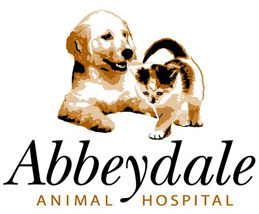Just as in the human knee, the most critical stabilizing structure in the canine knee is the cranial cruciate ligament (CCL). The primary function of the CCL is to prevent forward thrusting motion and inward rotation of the tibia during weight bearing and to prevent hyper-extension of the knee. The newest procedure for repairing a ruptured CCL by ligament replacement is the TightRope Ligament technique. This procedure, as an alternative to traditional canine knee-repair techniques, generally results in fewer complications and a shorter rehabilitation period.
Data suggests that TightRope CCL can be successfully performed in medium, large and giant breed dogs resulting in outcomes which are comparable or better than other methods. A MiniTightRope is also available for toy and small breeds. The TightRope CCL counteracts the forward tibial thrust and inward rotation resulting from CCL damage, while providing optimal joint range of motion.
To find out more about this procedure read our Client Information pamphlet.
